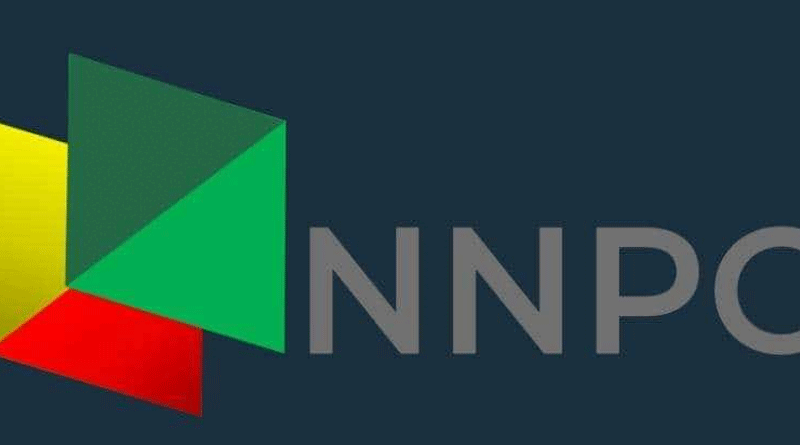Marketers ordered to open pumps for CNG vehicles
Plans have been finalised by the Federal Government to guarantee marketers open compressed natural gas pumps at filling stations all throughout the nation.
The government therefore declared that before obtaining final government clearance, prospective retail licensees would now have to set up a CNG point at their filling stations.
The government requested that oil marketers set up compressed natural gas points at their filling stations in order to improve consumer accessibility.
This was revealed by Farouk Ahmed, the Chief Executive of the Nigerian Midstream and Downstream Petroleum Regulatory Authority, at a Tuesday in Abuja conference with important oil marketing businesses.
The talk was to address the nation’s ongoing petroleum product shortage and offer substitutes.
Ahmed also revealed that their discussion of the compressed natural gas project of the Federal Government was quite lengthy.
He advised the big marketers to check if CNG is available at their petrol stations after President Bola Tinubu ordered that all government cars bought going forward have to operate on CNG.
He said without CNG points, new shop licence applications will not be accepted.
Ahmed said the administration was committed to lessen the economic burden of petrol and called the effort by the Federal administration to promote the use of CNG as an alternative to petrol a revolution.
“We also talked on the CNG revolution and our joint efforts to make sure that we have an alternative to PMS, which is very expensive, especially because of exchange rate fluctuations and instability,” he said. We are looking into gas as we have more than 200 trillion cubic feet of it. All we need is to use the sector to generate, invest, and benefit the consumer, and CNG is the way to go.
We talked about our intentions and our shared accountability to soon add CNG to our petrol stations. We are collaborating with the producing companies, our sister agency, NUPRC and NNPC Limited, and the Gas Aggregation Company of Nigeria to make sure that the product is available at a competitive cost to the consumers, just as we have PMS, diesel and kerosene.
Second, we wish to lessen the load of PMS imports and use. We have looked into the prospects of the parties involved switching to solar power for the energy needs of depots and retail locations. Nevertheless, we have talked about this alternative and have agreed to adopt it in stages because of the hefty entry price.
Our generators will run on less diesel as we use solar solutions. We shall require the installation of CNG add-ons in petrol stations once our discussions are over. This will be a precondition for new applications.
The chief executive informed reporters following the meeting that stopgaps like the Dangote Refinery will support the local sector but stressed that authority will not dictate the price range of the items.
Until the Dangote refinery is fully functioning, he said, the federal government will not fix the price of petroleum products from it.
He emphasised that even if the government was promoting domestic petroleum product refining to lower imports, the choice was commercial and oil marketers would not be forced to purchase from Dangote Refinery.
The authorities had just announced that it will shortly grant the petroleum refinery with a capacity of 650,000 barrels per day a fully functional licence. This year in April, the plant started selling diesel, or automobile petrol oil, to the home market. It is yet to release fuel, or Premium Motor Spirit.
“There are worries about the Dangote refinery’s opening and the possibility to import petroleum products, particularly diesel and aviation fuel,” he said. We allayed the marketers’ concerns by explaining that the Dangote refinery is a significant accomplishment for our nation because, in the past, we had to import every litre of petroleum products we needed, save for those that modular refineries provided.
And as a nation that produces oil, we at NMDPRA think that we ought to back our regional business. That is the reason we urge our marketers to support our nearby refineries.
However, they also have to decide commercially between the clients and the suppliers. Its selling and purchasing amounts are not determined by NMDPRA. Going to the Dangote refinery and making the purchase is their own choice, and the refinery sets the selling price. We as regulators are just concerned in making sure the country is adequately supplied; we will not set the price.
Farouk blamed the current petrol shortfall across the country on logistical problems NNPC Limited was having moving products from offshore to onshore depots.
He also made hints about intentions to outfit vehicles and retail locations with trackers to monitor volume accounting, product movement, and dispensing in order to get an accurate picture of our country’s consumption.
To precisely estimate our national consumption, we also talked about the necessity for trackers to be installed in the trucks, retail, and petrol stations to track product movement, dispensing, and accounting for the volume sold or carried.
Right now, we depend more on transportation data than on actual delivery into stores or other regions of consumption.
Speaking for the companies, Matrix Energy CEO Mr. Abdukabir Adisa Aliu declared that the companies were prepared to assist the government in its endeavour to expand the energy options available to Nigerians.
“The country comes first. When you have a strong country, marketers can operate effectively and consumers can make purchases.”
I think that any choice made by the federal government is the most important one. All of us support the government’s choices and we beg Nigerians to have patience,” he said.




